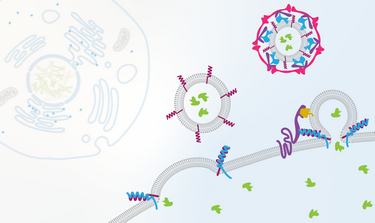Cell Biology: Transport and Signaling
How do we know what we know about cells? Enhance your scientific thinking and data analysis skills with this in-depth adventure through cell biology.
How do we know what we know about cells? Enhance your scientific thinking and data analysis skills with this in-depth adventure through cell biology.
How do we know what we know about cells? Enhance your scientific thinking and data analysis skills with this in-depth adventure through cell biology.
This is the first cell biology course in a three-part series. Building upon the concepts from biochemistry, genetics, and molecular biology from our 7.00x Introductory Biology and 7.05x Biochemistry MOOCs, these cell biology courses transition to a comprehensive discussion of biology at an experimental level. How do we know what we know about cells at a molecular level and how can we use that knowledge to design experiments to test hypotheses in cell biology?
Undergraduate biochemistry, genetics, and molecular biology (as found in 7.00x Introductory Biology and 7.05x Biochemistry)







